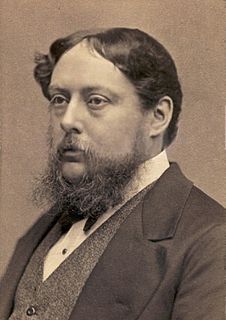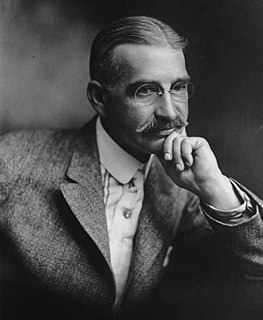Top 740 Apt Quotes & Sayings - Page 13
Explore popular Apt quotes.
Last updated on April 20, 2025.
One of the great arts in living is to learn the art of accurately appraising values. Everything that we think, that we earn, that we have given to us, that in any way touches our consciousness, has its own value. These values are apt to change with the mood, with time, or because of circumstances. We cannot safely tie to any material value. The values of all material possessions change continually, sometimes over night. Nothing of this nature has any permanent set value. The real values are those that stay by you, give you happiness and enrich you. They are the human values.
Most people lose money because of lack of emotional discipline -the ability to keep their emotions removed from investment decisions. Dieting provides an apt analogy. Most people have the necessary knowledge to lose weight-that is they know that in order to lose weight you have to exercise and cut your intake of fats. However, despite this widespread knowledge, the vast majority of people who attempt to lose weight are unsuccessful. Why? Because they lack the emotional discipline.
Signs are small measurable things, but interpretations are illimitable, and in girls of sweet, ardent nature, every sign is apt to conjure up wonder, hope, belief, vast as a sky, and colored by a thimbleful of matter in the shape of knowledge....wrong reasoning sometimes lands poor mortals in right conclusions: starting a long way off the true point, and proceeding by loops and zigzags, we now and then arrive just where we ought to be. Just because Miss Brooke was hasty in her trust, it is not therefore clear that Mr. Casaubon was unworthy of it.
Upon the whole, Chymistry is as yet but an opening science, closely connected with the usefull and ornamental arts, and worthy the attention of the liberal mind. And it must always become more and more so: for though it is only of late, that it has been looked upon in that light, the great progress already made in Chymical knowledge, gives us a pleasant prospect of rich additions to it. The Science is now studied on solid and rational grounds. While our knowledge is imperfect, it is apt to run into error: but Experiment is the thread that will lead us out of the labyrinth.
There are a lot of war memorials around the UK. It's usually a part of the war memorials. I loved the way The Glorious Dead sounded. It's kind of a strange thing to say. There's nothing particularly glorious about being dead. It sounded like a strange, horror film. It just grew from there, really. It seemed quite apt for the record. We're kind of obsessed with zombie movies and horror films. It seemed like it just fit, at the time.
Every wife ought to answer for her man. If the husband be engaged in a seditious club, or drinks mysterious healths, or be frugal of his candles on a rejoicing night, let her look to him and keep him out of harm's way; or the world will be apt to say, she has a mind to be a widow before her time. She ought, in such cases, to exert the authority of the curtain lecture; and if she finds him of a rebellious disposition, to tame him, as they do birds of prey, by dinning him in the ears all night long.
In my view there is a level of human knowledge that involves just getting it right aptly. This "animal" epistemic level is an inferior level in just the way of Diana's long shot in the dark while drunk. That shot is inferior in a certain respect if too poorly selected as a hunter's archery shot, even if not quite as poorly selected as would be a shot aimed at the moon. Even if Diana's too risky shot turns out to be apt by attaining success through sublime archery dexterity, it is still inferior in the particular respect of being so risky and hence so poorly selected.
From youth to middle, and often to past middle, age, most men are apt to be too closely engaged in the struggle of life to pay due attention to the strength of the body. They may take daily what they consider a sufficient amount of exercise; but the exercise is not calculated to keep the various limbs and muscles, still less the internal organs, in proper working order. Amid the ordinary concerns of life the man may appear strong, even stalwart. But when occasion arises for some special muscular exercise, or taxing the action of some organ, he finds out his weakness.
No general description of the mode of advance of human knowledge can be just which leaves out of account the social aspect of knowledge. That is of its very essence. What a thing society is! The workingman, with his trade union, knows that. Men and women moving in polite society understand it, still better. But Bohemians, like me, whose work is done in solitude, are apt to forget that not only is a man as a whole little better than a brute in solitude, but also that everything that bears any important meaning to him must receive its interpretation from social considerations.
The more sincerity is developed, the greater share of truth you will have. And however much sincerity a person may have, there is always a gap to fill, for we live in the midst of falsehood, and we are always apt to be carried away by this world of falsehood. Therefore we must never think we are sincere enough, and we must always be on our guard against influences which may carry us away from that sincerity which is the bridge between ourselves and our ideal. No study, no meditation is more helpful than sincerity itself.
A learned man is a sedentary, concentrated solitary enthusiast, who searches through books to discover some particular grain of truth upon which he has set his heart. If the passion for reading conquers him, his gains dwindle and vanish between his fingers. A reader, on the other hand, must check the desire for learning at the outset; if knowledge sticks to him well and good, but to go in pursuit of it, to read on a system, to become a specialist or an authority, is very apt to kill what suits us to consider the more humane passion for pure and disinterested reading.
The man of system, on the contrary, is apt to be very wise in his own conceit; and is often so enamoured with the supposed beauty of his own ideal plan of government, that he cannot suffer the smallest deviation from any part of it... He seems to imagine that he can arrange the different members of a great society with as much ease as the hand arranges the different pieces upon a chess-board. He does not consider that...in the great chess-board of human society, every single piece has a principle of motion of its own, altogether different from that which the legislature might choose to impress upon it.
Satirical writers and speakers are not half so clever as they think themselves, nor as they are thought to be. They do winnow the corn, it is true, but it is to feed upon the chaff. I am sorry to add that they who are always speaking ill of others are also very apt to be doing ill to them. It requires some talent and some generosity to find out talent and generosity in others, though nothing but self-conceit and malice are needed to discover or to imagine faults. It is much easier for an ill-natured man than for a good-natured man to be smart and witty.
There is nothing in England that exercises a more delightful spell over my imagination than the lingerings of the holiday customs and rural games of former times. They recall the pictures my fancy used to draw in the May morning of life, when as yet I only knew the world through books, and believed it to be all that poets had painted it; and they bring with them the flavour of those honest days of yore, in which, perhaps with equal fallacy, I am apt to think the world was more home-bred, social, and joyous than at present.
If you are female, and conditions are otherwise apt, you are supposed to decide whether you want to become a mother by thinking carefully about whether you really want to have a child of your very own, what it would be like to be a mother, whether this is something you really want and will be happy with, etc. In general, you are supposed to evaluate whether you should have a child largely on the basis of what you think it will be like for you to have a child.
[Rhyme is] but the invention of a barbarous age, to set off wretched matter and lame Meter; ... Not without cause therefore some both Italian and Spanish poets of prime note have rejected rhyme, ... as have also long since our best English tragedies, as... trivial and of no true musical delight; which [truly] consists only in apt numbers, fit quantity of syllables, and the sense variously drawn out from one verse into another, not in the jingling sound of like endings, a fault avoided by the learned ancients both in poetry and all good oratory.
Women believe -- or at least often pretend to believe -- that all our tenderness for them springs from desire; that we love them when we have not for a time enjoyed them, and dismiss them when we are sated, or to express it more precisely, exhausted. There is no truth in this idea, though it may be made to appear true. When we are rigid with desire, we are apt to pretend a great tenderness in the hope of satisfying that desire; but at no other time are we in fact so liable to treat women brutally, and so unlikely to feel any deep emotion but one.
There are few ways in which good people do more harm to those who take them seriously than to defend the gospel with arguments that won't hold water. Many of the difficulties encountered by young people going to college would be avoided if parents and teachers were more careful to distinguish between what they know to be true and what they think may be true. Impetuous youth, upon finding the authority it trusts crumbling, even on unimportant details, is apt to lump everything together and throw the baby out with the bath.
Imagination has given us the steam engine, the telephone, the talking-machine, and the automobile, for these things had to be dreamed of before they became realities. So I believe that dreams - day dreams, you know, with your eyes wide open and your brain machinery whizzing - are likely to lead to the betterment of the world. The imaginative child will become the imaginative man or woman most apt to create, to invent, and therefore to foster civilization. A prominent educator tells me that fairy tales are of untold value in developing imagination in the young. I believe it.
I think there are basically two kinds of musicians: some are extroverted and some are introverted. I think extroverted musicians are more in the entertainer kind of camp, which is just as valid, but you're going to be more apt to make music that is of the moment - whereas if you're coming from a more introverted place, the music is going to end up being more about the past or more personal. It's not going to be about the people in the room, per se.



















